Does Ivermectin Help with COVID-19? Why You Should NOT Use It [Up-To-Date]
In the ongoing global battle against COVID-19, the search for effective treatments has sparked interest in repurposed medications. One such drug that gained significant attention is Ivermectin. Originally intended for parasitic infections, it has emerged as a potential remedy for the novel coronavirus. This comprehensive guide navigates through the origins of Ivermectin, its established uses based on meta-analysis and systematic review, the ongoing debate surrounding Ivermectin and COVID-19, and ultimately, reasons why using it for this viral infection might not be the best course of action.
What Is Ivermectin?
Ivermectin drug is a pharmaceutical compound hailed for its broad-spectrum antiparasitic properties. It’s a generic medication manufactured by various companies and is also available under the brand name Stromectol, made by Merck Sharp & Dohme Co. Developed in the late 1970s, it revolutionized the treatment of various parasitic infestations in both humans and animals [1].
Chemically, the drug belongs to the macrocyclic lactone group and is derived from the bacterium Streptomyces avermitilis. Its molecular structure comprises a complex arrangement of atoms that confers its efficacy against a wide range of parasites. This structure enables Ivermectin to selectively bind to specific receptors in nerve and muscle cells of parasites, causing increased permeability and subsequent paralysis. This action results in the demise of the parasites.
The drug’s potency against parasites has made it a cornerstone in the treatment and prevention of various parasitic infections globally. It has played a pivotal role in combating diseases caused by a spectrum of parasites, including roundworms, threadworms, and external parasites like lice and mites.
What Diseases Is Ivermectin Used to Treat?
Ivermectin’s wide-ranging impact in the medical field stems from its efficacy against several parasitic diseases, including but not limited to the following [2]:
- river blindness (onchocerciasis): Ivermectin medication is widely recognized for treating and preventing river blindness, caused by the parasitic worm Onchocerca volvulus. Administered annually or semi-annually, it effectively kills the parasite’s larvae, reducing the disease burden and preventing progression, improving the quality of life for affected communities;
- strongyloidiasis: The drug helps treat strongyloidiasis by effectively eliminating the parasitic worms, specifically Strongyloides stercoralis, leading to the resolution of the infection;
- lymphatic filariasis: The drug plays a crucial role in eliminating lymphatic filariasis, a tropical disease caused by parasitic worms transmitted by mosquitoes. Combined with medications like diethylcarbamazine or albendazole, it is used in mass drug administration programs to reduce disease transmission and alleviate symptoms such as swelling and disfigurement;
- scabies: Ivermectin effectively treats scabies, a contagious skin infestation caused by the Sarcoptes scabiei mite. Whether administered orally or topically, the drug proves effective in eradicating the mites and relieving symptoms like intense itching and skin rash.
As a note, the U.S. Food and Drug Administration (FDA) approved Ivermectin pills to treat 2 specific types of parasitic infections: intestinal strongyloidiasis and onchocerciasis. Topical forms of the drug are also FDA-approved for external parasites like head lice and skin conditions such as rosacea [3]. It is important to note that the drug should only be used under the supervision of healthcare professionals to ensure appropriate dosage and safety.
Is Ivermectin Effective Against COVID-19?
The current status of Ivermectin’s efficacy against COVID-19, as presented on UpToDate, underscores a persistent and heated debate in the scientific community since the beginning of the pandemic. Initial interest in the drug stemmed from laboratory studies suggesting its potential antiviral effects against SARS-CoV-2, the virus responsible for COVID-19. However, the clinical evidence supporting its effectiveness in treating or preventing COVID-19 has been inconclusive and controversial.
Several studies have been conducted to investigate the use of Ivermectin tablets in COVID-19 management. Some smaller trials and observational studies have reported positive outcomes, claiming that the med may reduce viral load, shorten recovery time, lower risk for mortality, ventilation, intensive care unit (ICU) admission, or hospitalization, and decrease the risk of severe disease or death [4][5]. These findings led to widespread interest and advocacy for the use of Ivermectin as a potential treatment for COVID-19, particularly in regions with limited access to vaccines or other medications.
However, larger and more rigorous randomized controlled trials have yielded conflicting and less supportive results. Some well-designed studies failed to demonstrate significant benefits from Ivermectin in terms of reducing mortality, hospitalization, or disease progression in COVID-19 patients [6]. In the context of COVID-19, it’s essential to rely on scientifically proven and authorized treatments and preventive measures, such as vaccination, mask-wearing, social distancing, and established medications like antivirals or monoclonal antibodies for high-risk individuals.
What Options for Treating COVID-19 Really Work?
The FDA has given its approval for the antiviral medication remdesivir, commercially known as Veklury, to address COVID-19 in individuals aged 12 and above. Remdesivir is recommended for hospitalized patients with the coronavirus disease requiring supplemental oxygen or those at elevated risk of severe illness. Administered intravenously, it involves a needle inserted into the skin for delivery.
Paxlovid, another approved drug, contains nirmatrelvir, a compound that works to inhibit a specific virus-replication enzyme in COVID-19, and ritonavir, an antiviral assisting in slowing down nirmatrelvir’s breakdown. The med is currently accessible under emergency use authorization for treating mild to moderate COVID-19 in individuals aged 12–18 who are at an increased risk of severe illness. This medication is administered orally in pill form.
The FDA has also approved rheumatoid arthritis medications baricitinib (marketed as Olumiant) and tocilizumab (Actemra) to manage certain cases of COVID-19. Baricitinib, available in pill form, appears to combat the disease by lessening inflammation and exerting antiviral effects. Tocilizumab, administered via injection, is believed to mitigate COVID-19 impact by reducing inflammation. Both medications might be employed for hospitalized COVID-19 patients requiring mechanical ventilation or supplemental oxygen [7].
Besides, the FDA has granted emergency use authorization for molnupiravir, an antiviral medication used during mild to moderate COVID-19 in high-risk adults who are unable to use other treatments. It’s taken orally as a pill.
Based on a meta-analysis, researchers are exploring other drugs that have shown promise as good COVID-19 treatments [7]:
- antiviral drugs: Antivirals such as favipiravir and merimepodib are currently under investigation. Studies have indicated the ineffectiveness of the lopinavir and ritonavir combination;
- dexamethasone: This corticosteroid is recommended by the National Institutes of Health for hospitalized COVID-19 patients on ventilators or requiring supplemental oxygen. Other corticosteroids like prednisone or methylprednisolone may be alternatives if dexamethasone isn’t available, although they might be harmful for less severe infections;
- immunotherapy: It includes convalescent plasma and mesenchymal stem cells, with the FDA authorizing their emergency use for COVID-19 treatment. Anakinra, an immune system suppression drug, is also FDA-authorized for those requiring supplemental oxygen. Monoclonal antibodies, like vilobelimab, are FDA-authorized for individuals receiving mechanical ventilation or extracorporeal membrane oxygenation (ECMO).
Using these medications without a prescription and the healthcare provider’s approval, even if promising, can have serious side effects and is reserved for critical illness under proper care.
So, Why You Shouldn’t Use Ivermectin for COVID-19?
Ivermectin is a medication primarily used to treat parasitic infections in humans and animals. The debate over its efficacy in COVID-19 treatment continues, with ongoing research aiming to clarify its role. The use of Ivermectin in COVID-19 patients should be limited to participation in clinical trials since the FDA hasn’t approved it. Presently, there exists insufficient robust evidence to endorse the use of Ivermectin as a treatment for COVID-19. Additional randomized clinical trials, ensuring a higher level of certainty in the evidence, are necessary to evaluate its effectiveness in treating the disease. Currently approved therapies, vaccination, and evidence-based practices stand as crucial pillars in the fight against COVID-19, emphasizing the need for caution and reliance on established treatments in this ongoing battle.
References
- Ivermectin. Retrieved: November 20, 2023. Wikipedia.org.
- Ivermectin: Uses, Doses, Side Effects, Warnings. Medically reviewed by Philip Thornton, DipPharm. Retrieved: November 20, 2023. Drugs.com.
- Why You Should Not Use Ivermectin to Treat and Prevent COVID-19 | FDA. Retrieved: November 20, 2023. Fda.gov.
- Ivermectin for COVID-19: Real-Time Meta Analysis of 99 Studies. Retrieved: November 20, 2023. C19ivm.org.
- A Five-Day Course of Ivermectin for the Treatment of COVID-19 May Reduce the Duration of Illness. By Sabeena Ahmed, Mohammad Mahbubul Karim, Allen G. Ross, et al. Published: December 2, 2020. Pubmed.ncbi.nlm.nih.gov.
- Effect of Early Treatment with Ivermectin Among Patients with Covid-19. By Gilmar Reis, Eduardo A. S. M. Silva, Daniela C. M. Silva, et al. Published: May 5, 2022. Nejm.org.
- COVID-19 Drugs: Are There Any That Work? By Daniel C. DeSimone. Retrieved: November 20, 2023. Mayoclinic.org.
![Does Ivermectin Help with COVID-19? Why You Should NOT Use It [Up-To-Date]](https://buygenerics.com/wp-content/uploads/2023/11/does-ivermectin-help-with-covid-19-why-you-should-not-use-it.png)

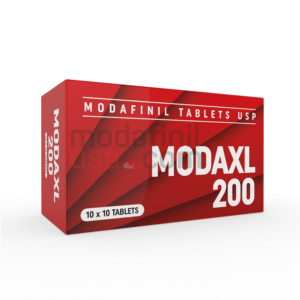
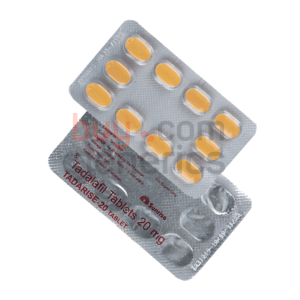
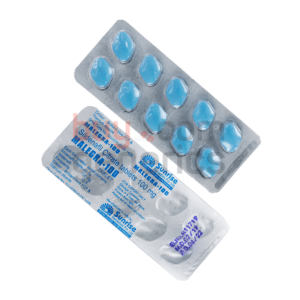
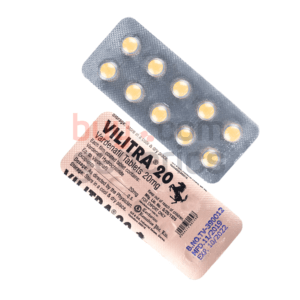
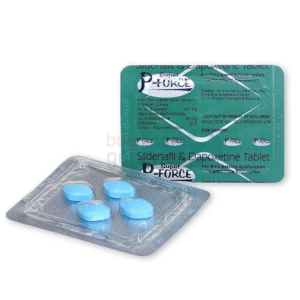

![How to Get Viagra in the US Without Prescription [Super-Fast Shipping]](https://buygenerics.com/wp-content/uploads/2023/11/how-to-get-viagra-in-the-us-without-prescription-super-fast-shipping-100x100.png)







